You know that your hair is supposed to look and feel clean after washing.
But that’s not the case.
And you’re wondering “Why is my hair sticky after washing?”
You’re clueless.
This used to happen to me a lot when I was in college and I eventually got to the bottom of it.
There are of course multiple reasons why this can happen. Everyone’s hair is different and you have to consider multiple hair products and environmental scenarios.
That’s what this post is going to cover – I’m going to talk about all the different reasons why your hair is sticky even after washing.
Let’s get into it!
This post contains affiliate links, meaning I may make a commission at no extra cost to you if you decide to click on a link and purchase something. Click here to read the full disclaimer.
1. Your hair products are too heavy for your hair
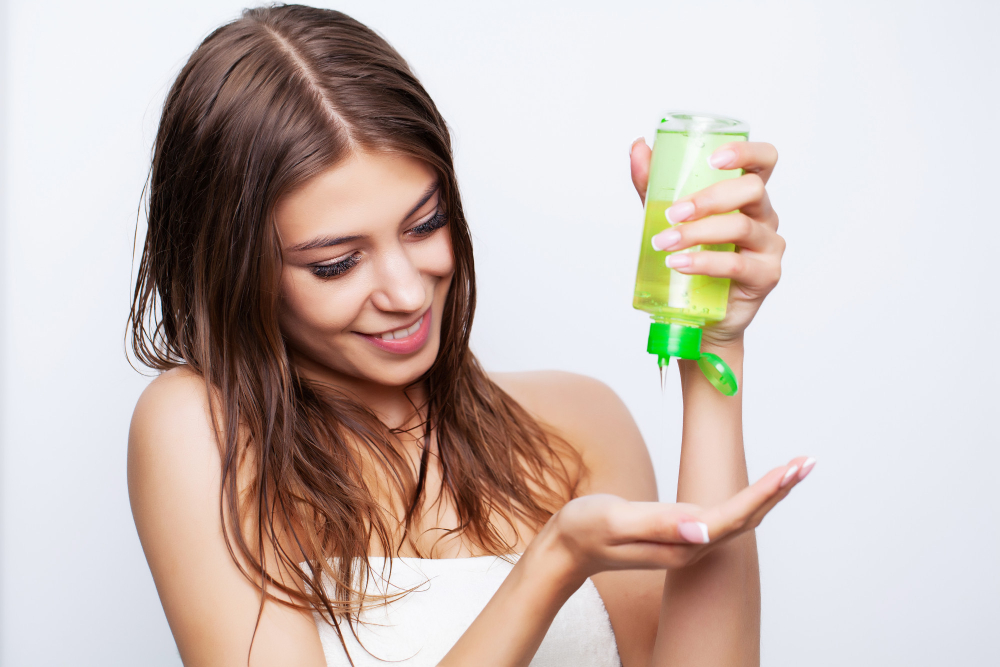
Everybody has different types of hair.
Your hair may be curly and thick or curly and fine.
Or it may be straight and thick or straight and fine.
Either way, you need to find out what texture your hair is and what hair density you have.
If you have very fine hair, understand that it cannot take heavy products like oil, shea butter, or other butter or heavy and thick hair products like hair creams, and hair oils.
For instance, coconut oil is a very heavy oil – the molecules are very large and it doesn’t penetrate the hair easily unless you use defractionated coconut oil.
Shea butter can also be very heavy and weigh down your hair quite a lot.
And if you use a very mild cleanser or mild shampoo to wash off these heavy hair products – you’re going to end up with sticky hair because these products are still coating your hair strands and they haven’t been rinsed away completely.
2. You are using too many silicones
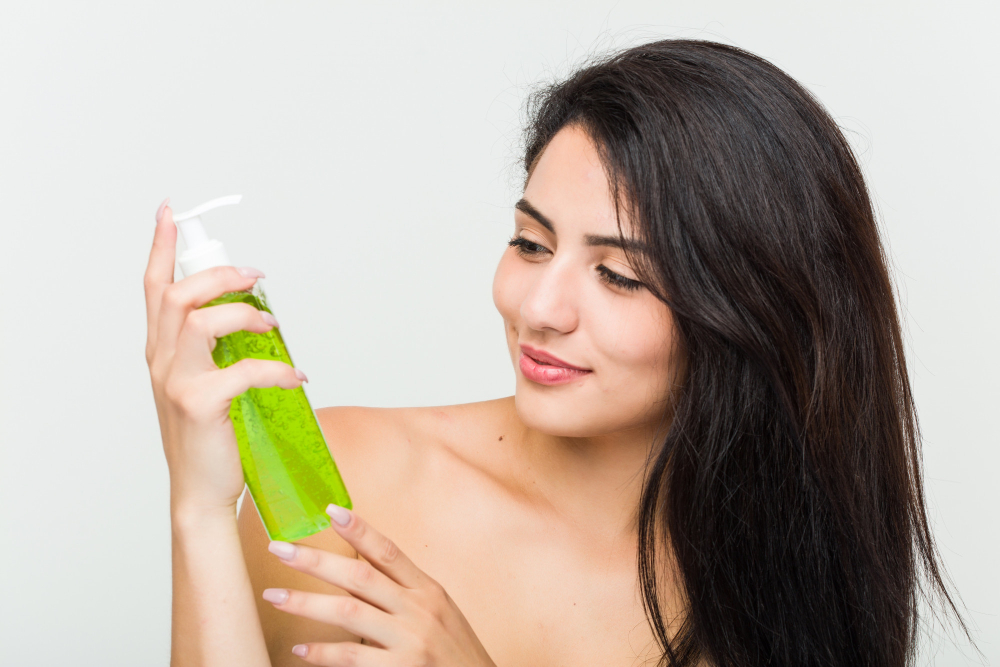
Some shampoos and conditioners have silicones.
Silicones aren’t very water soluble and leave a waxy/glossy finish after washing because they coat the hair follicles entirely.
Check your shampoo for its ingredients.
If you notice that your shampoo has silicone, please get another shampoo that isn’t too drying and washes away easily.
Additionally, wash your hair thoroughly and do 2 rinses before getting out of the shower – this will ensure that you are washing out all the shampoo in your hair.
If you feel that your hair is very sticky even after washing – chances are that you have a lot of silicones in your hair and your shampoo isn’t doing a good job.
So, switch your shampoo for something that’s more clarifying, or use an apple cider vinegar rinse.
It smells bad, but it completely washes out when you rinse it and it leaves your hair soft and shiny.
3. You are over-washing your hair
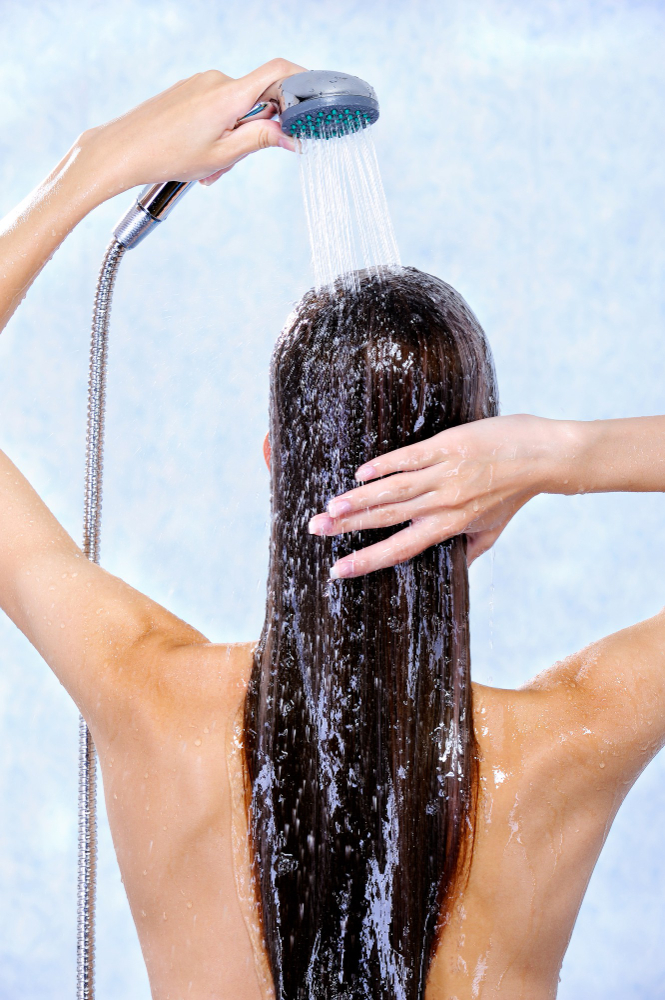
Everybody’s scalp has natural oils called sebum.
Sebum is what is responsible for healthy hair growth and if your hair is very long, it can take a long time for the sebum produced in your scalp to reach the ends.
That’s why you’ll notice that your ends are dry but your scalp is greasy.
However, if you over-wash your hair with a lot of shampoos or a very harsh shampoo, you could be doing more damage because you’re completely washing away your hair’s natural oils – like sebum.
This will cause your scalp to become very dry and irritated and overproduce more sebum to counteract the dryness – leading to an over-greasy scalp.
So, check your hair and see if you really need a wash.
I don’t recommend that anybody washes their hair more than 2 times a week.
Curly girls can get away with washing their hair once a week too since sebum takes longer to course through their curls due to the shape and texture of their hair follicles.
4. You are using way too much conditioner
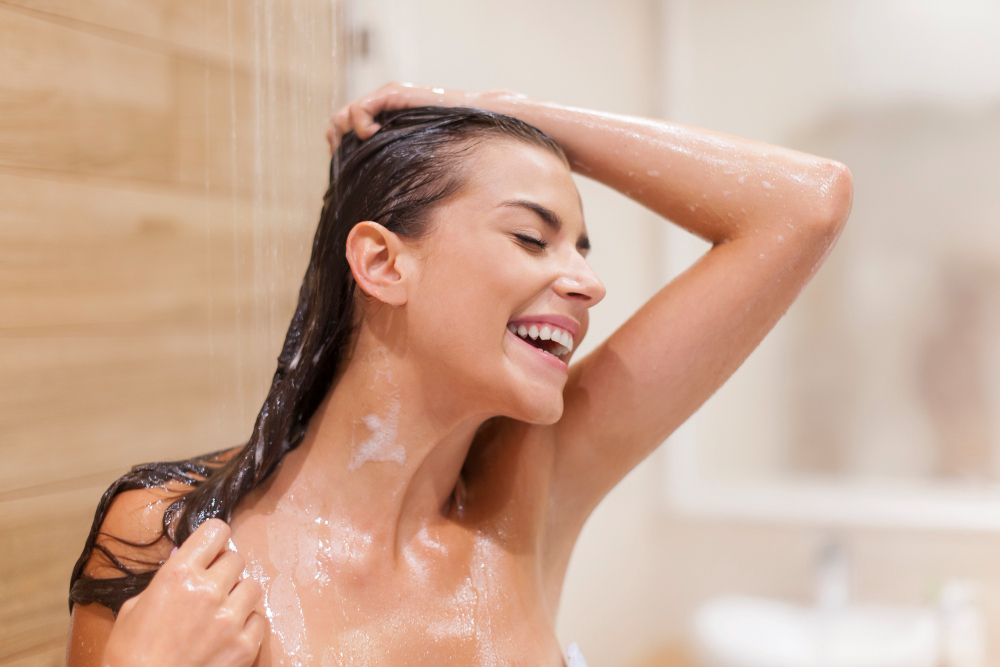
Hair conditioner is good in small amounts.
But if you use a lot of hair conditioners, or the conditioner has a lot of silicone, then this is not going to help your hair.
A heavy conditioner will coat your hair entirely and form a new layer over your hair making it look glossy – but this will take more shampoo to remove.
And it will lead to an endless cycle of conditioning and over-shampooing which in turn will damage your hair and leave it drier.
I’ve made this mistake so many times growing up.
Here are some tips I recommend:
- You don’t need to use conditioner after every wash – sometimes, just let your hair breathe
- Alternate between a conditioner and a mild serum – this will give your hair some space to breathe and the serum isn’t as heavy as a conditioner
- Focus more on your hair health by consuming more good fats like avocado, nuts, and fatty fish and staying hydrated – this will ensure that your hair’s health is good from the inside out.
- Experiment with 1-2 conditioners and use one that really suits your hair. You can also try a leave-in conditioner that doesn’t damage hair or coat your hair making it heavy.
5. You are applying conditioner to your scalp
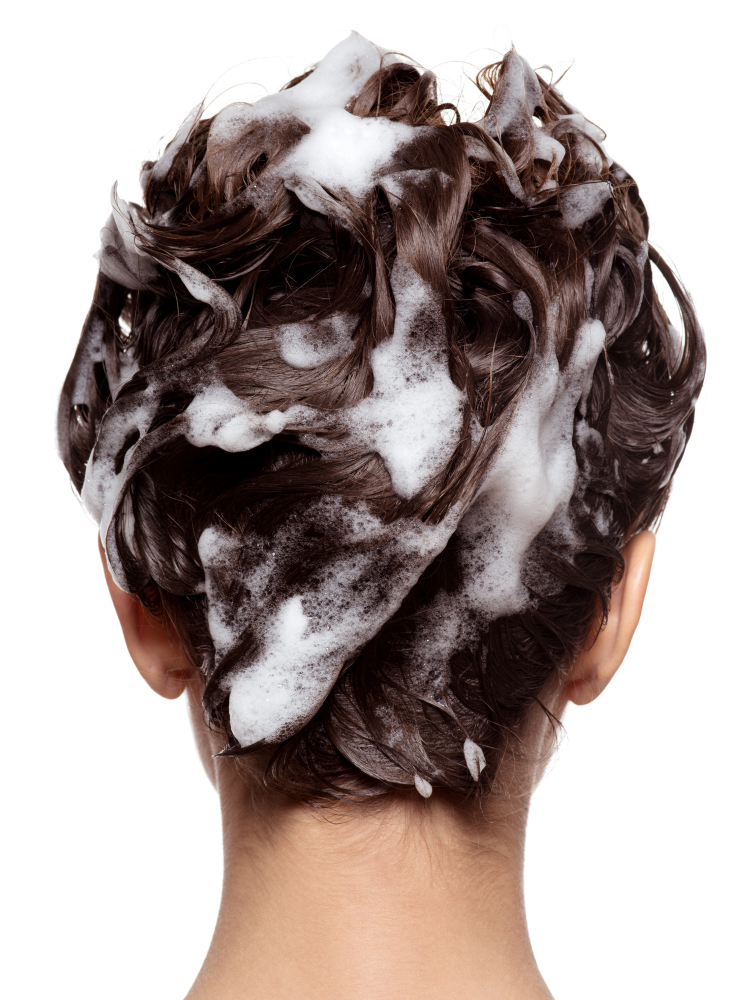
Conditioner should only be used from the mid-length to your ends.
If you go anywhere too close to the scalp, you are going to damage your hair because it is going to coat the scalp and cause a lot of irritation.
This build-up can even cause skin infections if you use too much conditioner as it will mix with the sebum and sweat and just make your scalp irritated.
So, whenever you are applying a heavy-hair product – please start with mid-lengths or 2 inches away from your scalp.
This will ensure that you’re not contributing to product buildup.
6. You are over-oiling your hair
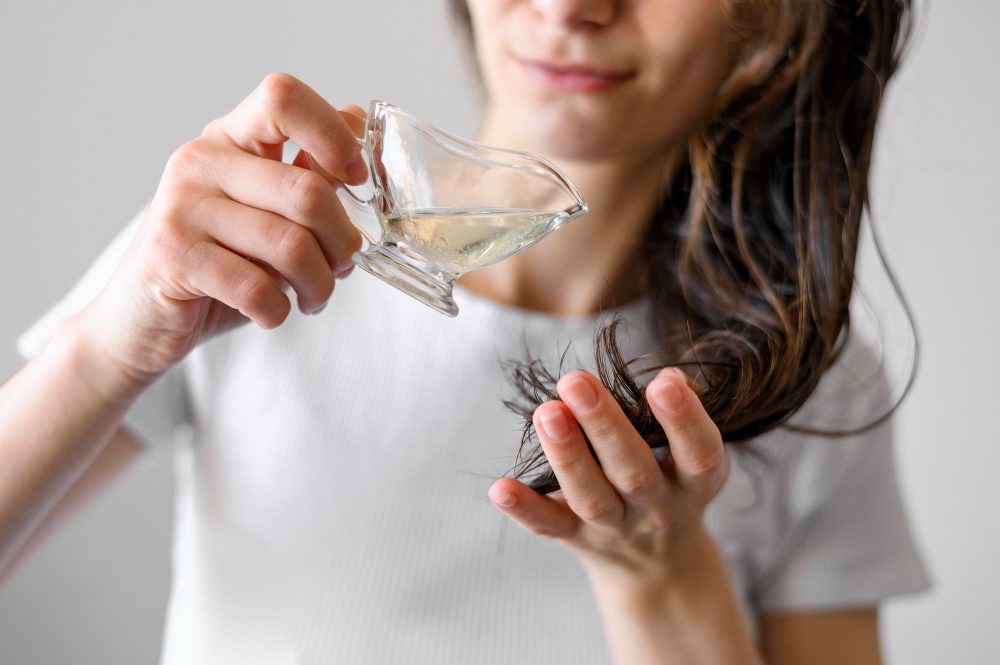
No matter what the condition of your hair is or how long it is, you should not oil your hair more than 2 times a week.
In a lot of Asian cultures (I’m Indian and I know this firsthand), women are encouraged to oil their hair.
Oiling your hair has a lot of benefits – but you should never leave hair oil in your hair for more than 2 hours.
Especially, leaving oil in your hair for the whole night will do more bad than good.
There are multiple reasons for this:
- Oil only needs 2 hours to get absorbed by the hair and scalp. Your hair is going to get zero benefits after 2 hours – and you’re just going to make it more difficult to get the oil out
- When oil is left for a long time in the hair (over 2 hours), it is going to attract dirt and sweat. The dirt and sweat will stick to the oil and form a very sticky residue on the scalp and hair – this can cause skin infections on your scalp and can make your hair very greasy – which means you will have to use more shampoo or a stronger shampoo to remove the buildup from your hair – and overwashing your hair can cause intense dryness – so this counteracts the good effects of using hair oil.
If you like prepooing your hair, read this post to understand the right way to do it.
Even if you have curly hair, I always recommend oiling hair 1 time a week – this is the safest bet.
You will derive all the benefits of using hair oil and you won’t be over-oiling.
7. Your water is hard
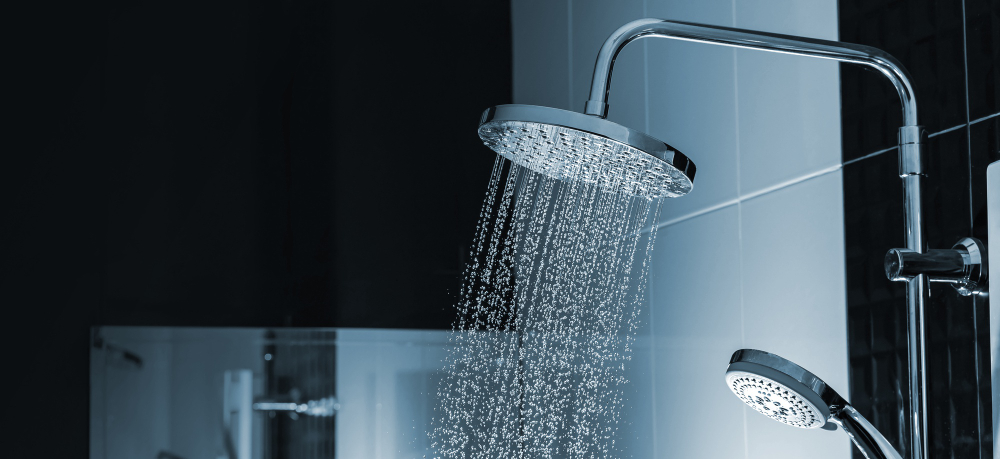
This was a serious problem when I was doing my bachelor’s degree because I lived in a town with hard water.
The hard water was horrible for all of us girls and we noticed frequent hair fall and weird-looking hair.
I also had a lot of knots and noticed my hair would get tangled easily. My curls did not thrive during those 4 years.
When you wash your hair with hard water, the salts present in the water (magnesium and calcium) do not allow the shampoo to froth and stick to the dirt particles properly. They don’t wash away the shampoo and build up well.
And this water leaves your hair very dry and you’ll end up with salt residue in your hair.
So, if you notice that you’re showering in hard water – then just buy an attachable water filter for your shower head.
You’ll have to replace the filter every 6 months – but the benefits of bathing in clean water outweigh the bad – trust me.
Your hair and skin will thrive and be healthy and glowy – it’s worth the investment.
8. Your hair is just producing a lot of oils
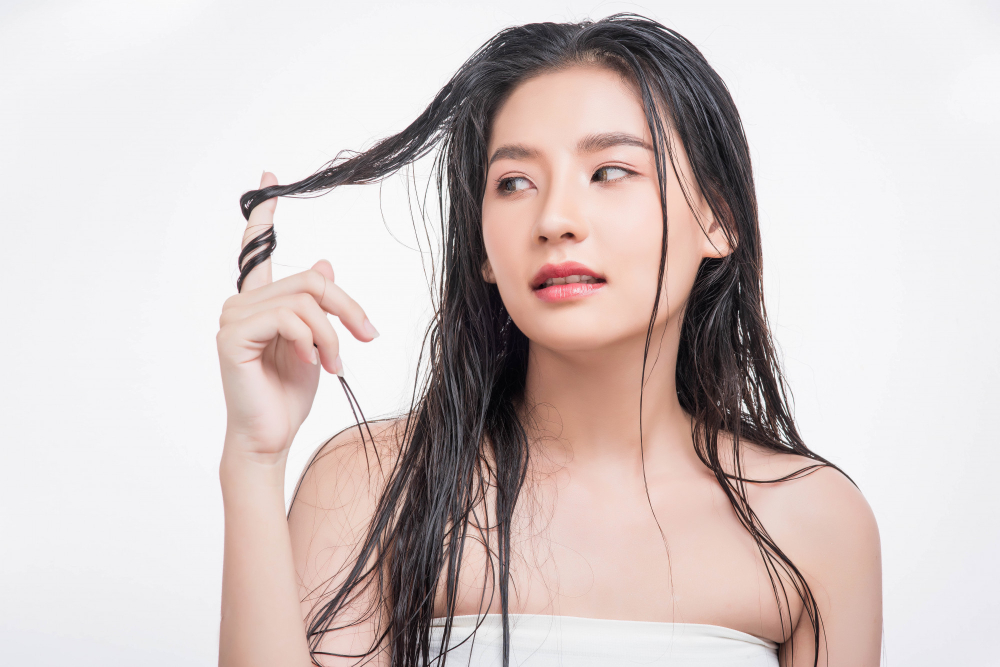
If you feel that you are getting rid of all the product buildup and your scalp is still greasy after washing, then chances are your scalp is just producing a lot of sebum or natural oil.
This can happen due to a variety of reasons – hormone fluctuations, diet, or just genetics.
In this case, get a shampoo specifically made for greasy hair.
I’ll give you more tips towards the end of this post.
9. Your diet isn’t healthy
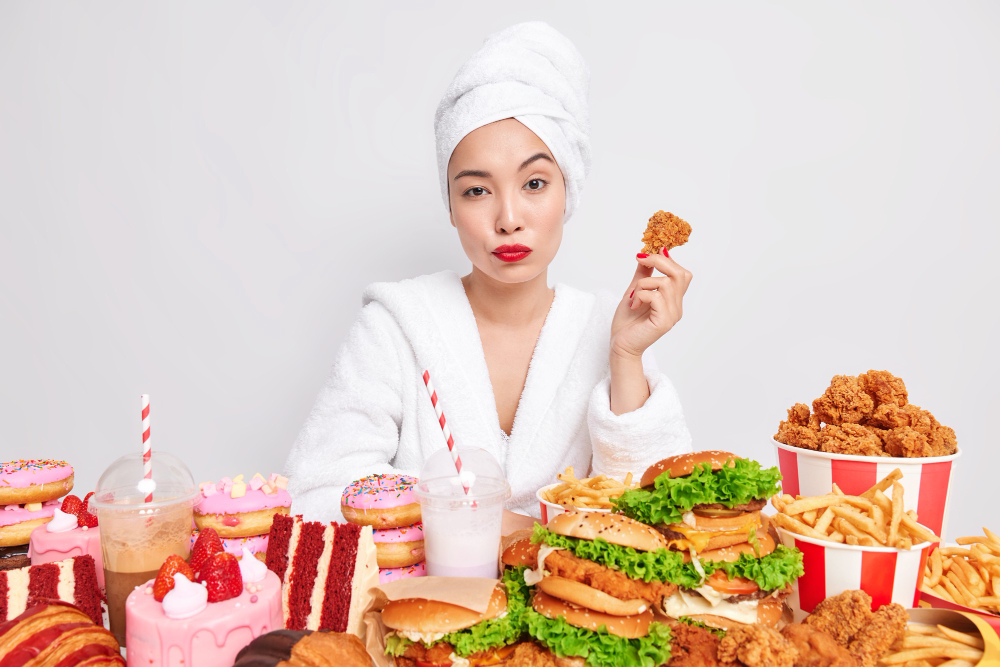
All my life, I ate junk food and takeout.
Even in college, I’d prefer eating a bowl of instant cup noodles instead of going down to the mess and eating healthy, cooked food.
I was a sucker for convenience.
I’ve suffered from acne since the age of 9 and my hair and skin have always been greasy.
The month I shifted to home-cooked meals and reduced the intake of sugary, deep-fried foods or junk foods – my skin and hair improved dramatically.
I sent my boyfriend pictures of my face before and after and he was stunned.
My hair stopped becoming over-greasy near the scalp and dry near the ends. I stopped having dry, frizzy curly hair.
It started becoming softer and my curl pattern improved – I no longer get knots or tangles and my curly hair has become very soft and manageable.
10. You’re not using clean tools
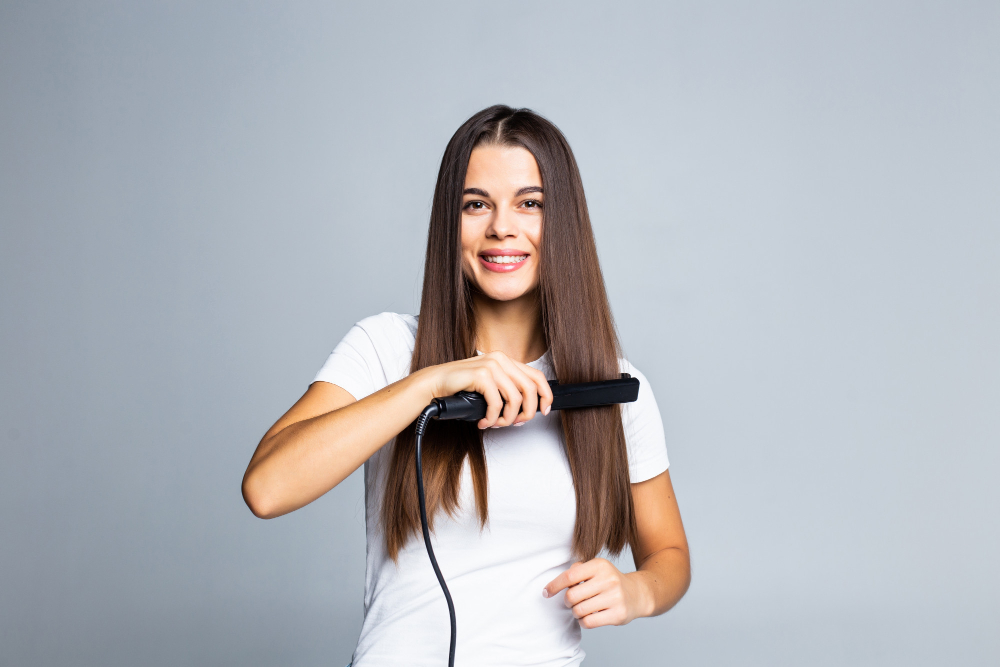
Make sure that the brush you use is clean and free of residue.
If there is product buildup on your brush, it is going to transfer to your hair and scalp.
If you use a Denman brush, the rubber padding gets easily coated with hair products like hair gel and cream and forms a sticky residue that can transfer to your hair and make it sticky.
So, clean your brushes and combs regularly.
Likewise, change your pillowcase every 3-5 days to ensure that your hair is clean and healthy.
11. You may have skin issues
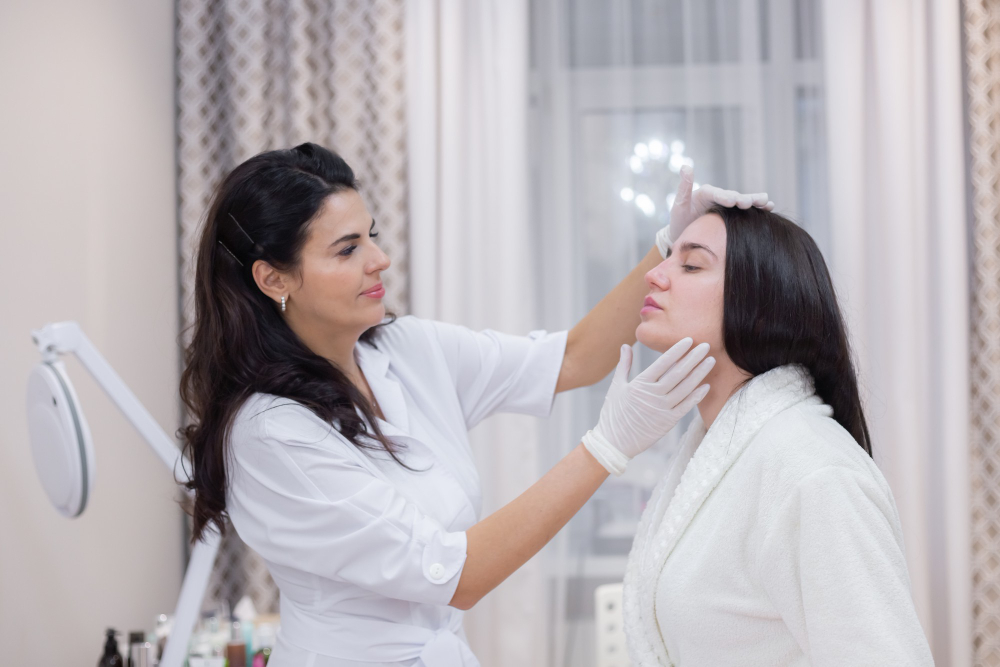
If you have exhausted all the methods and you are doing everything right, but you notice that your hair is greasy and sticky – go to your dermatologist.
You have an underlying skin condition that is causing greasy hair.
This will help you rule out any skin condition.
How to get rid of sticky hair?
Honestly, I know I covered a lot of situations, but just to recap, here’s everything you can do to make sure you don’t have sticky hair after washing:
1. Clean all your tools regularly
If you are using a hair dryer, clean it. Dust particles can go in and stick to your hair while drying causing it to become sticky.
Regularly clean your combs and brushes to ensure that they are free of build-up – you don’t want that residue sticking to your hair.
Make sure that you change your pillowcase 1-2 times a week to ensure that your hair is healthy and clean.
2. Eat a rich diet of good foods

I’ve always taken care of my hair from the outside – but the real changes happen when you start to nourish your body from within.
Cut out sugary foods and junk foods and try to eat more wholesome foods.
Eat more fruits, vegetables, leafy greens, and good fats like avocado and salmon. Protein and fat-rich foods are really good for your skin and hair.
Stay hydrated. I used this calculator to find out how many liters I need in a day and this helps me drink enough water.
Honestly, if your hydration and food intake are good, everything automatically falls into place – your skin and hair health, your fitness, and so on.
3. Shampoo your hair regularly (but don’t overdo it)
For people with dehydrated and coarse hair, I don’t recommend shampooing more than 1-2 times a week.
If you have very greasy hair, stick to the same routine because over-shampooing your hair will cause your scalp to produce more oils – leading to more greasiness.
It’s the same with acne – you don’t want to overdry your face otherwise your skin will produce more sebum to counteract the lack of oils.
4. Use a clarifying shampoo
Do research when buying shampoos.
A clarifying shampoo will remove all excess product buildup without overdrying your scalp and removing the sebum from your scalp.
It’s the perfect solution if you’re looking for a shampoo that removes build-up but does not dry out the scalp.
5. Do your research before buying products

Read the reviews on Amazon and see how it suits other people with the same type of hair.
I also like to watch Youtube videos to understand what the product contains and is about and I will read the comments to see other people’s reactions and updates about the product.
Do your research – never buy a product because someone says it’s good. Always read the reviews and see what the majority has to say.
6. Ditch products that are too heavy for your hair
A lot of people love hair butter because they make your hair glossy and give it a good texture.
I myself cannot use them even though I have curly hair.
Because I have very fine hair – I prefer using the Cantu Cream instead because it’s lighter and doesn’t leave my hair feeling heavy and sticky.
Use hair products that suit your hair.
Do some research to figure out what your hair is actually like on its own and use products that are suited for your hair.
Not everything will suit you, and that’s okay.
7. Use a water softener for your showerhead or filtered water for your hair
If you notice that you are living in an area of hard water, use a water softener – this will really help clean your hair well and get rid of the product without leaving a weird sticky residue.
Now, if this is not an option – then use filtered water for your hair.
Collect filtered water in a bottle and after you’re done cleaning your body with your shower water, use the bottle to wash your hair.
If you notice after 2 weeks that your hair quality is improving – then you’ll know that it was the hard water doing all that damage to your hair.
8. Go to a dermatologist
Again, if you’re doing everything right and you see no change in your hair, please refer a dermatologist.
They will be able to help you out and tell you what exactly is causing the greasy or sticky hair.
This is the last alternative you can consider.
Conclusion
Hair health is important.
And I hope this post helped give you some insight into how to avoid sticky hair after washing.
Here are a few more posts you might find helpful:
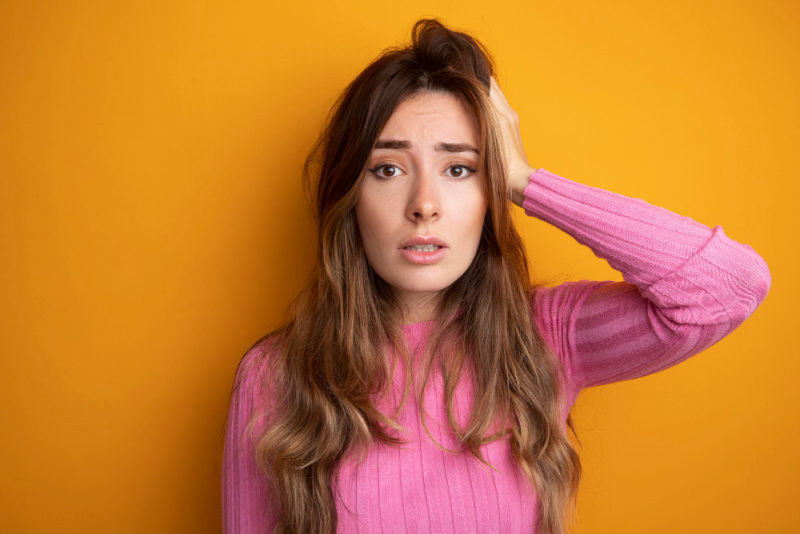
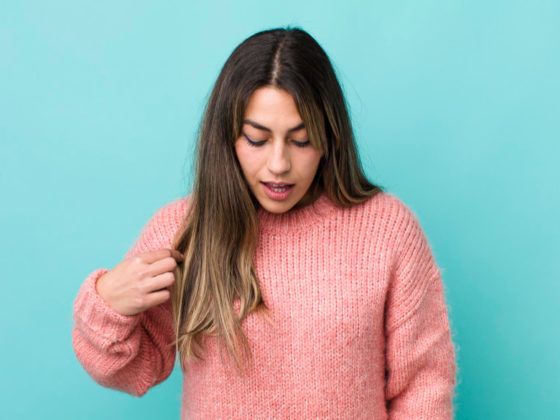
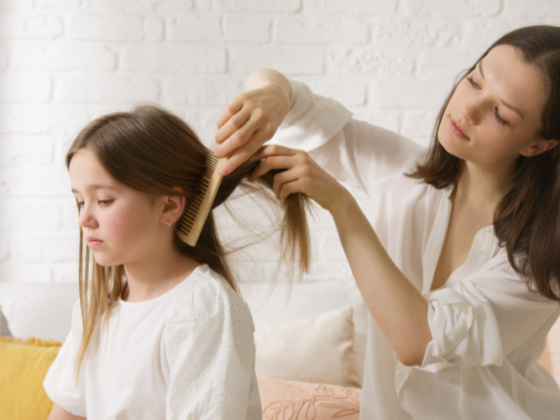
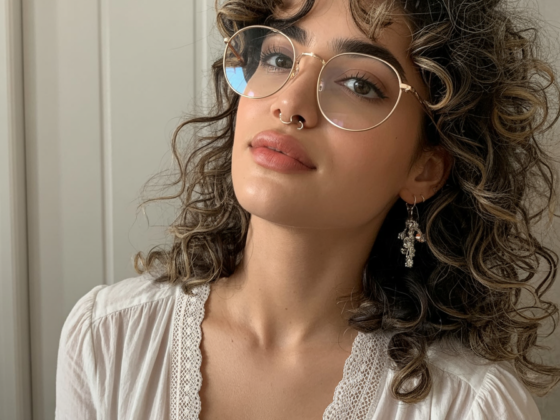
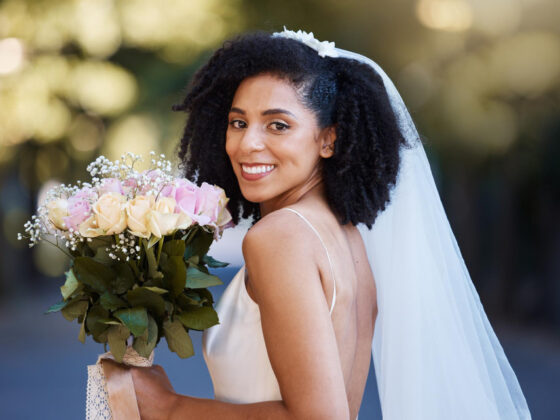


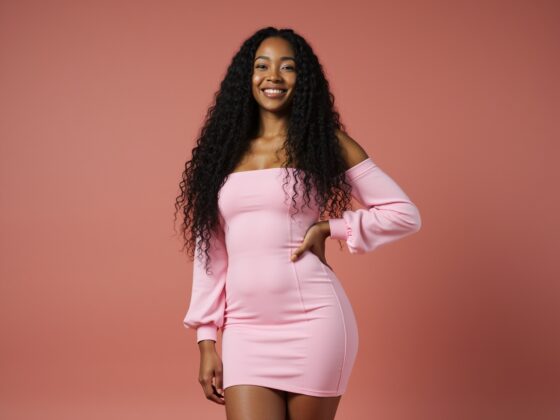
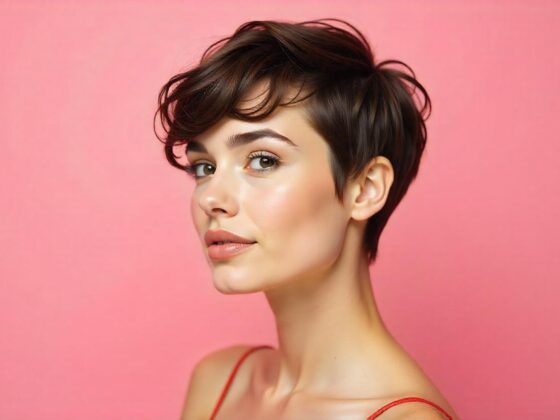
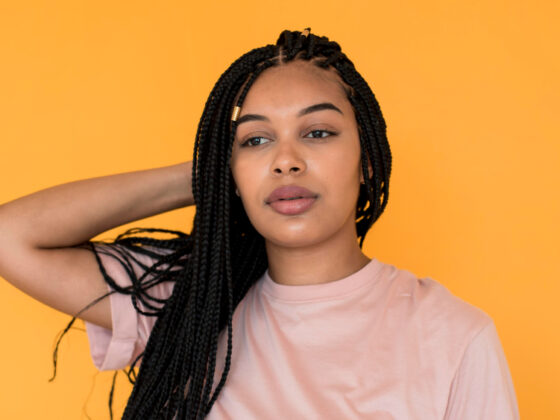

2 comments
Thank you for this lovely informative article.
You’re most welcome Dimple. =)